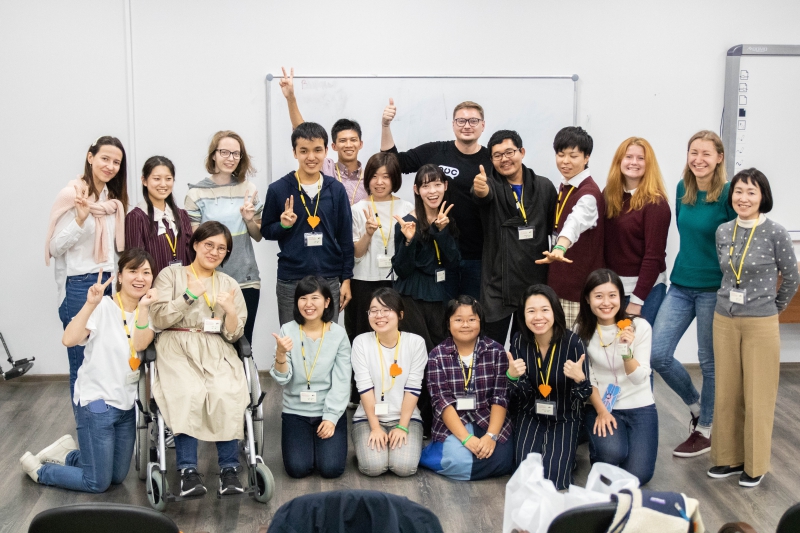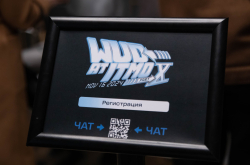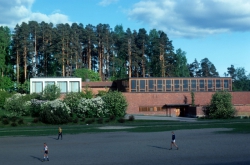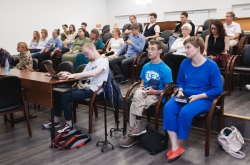The history of Russian-Japanese Youth Exchangecan be traced to twenty years ago when the program was launched in 1999. Topics of the exchanges have been changing ever since; in these years, they’ve focused on sports, culture, arts, cosplay, anime, and education. In 2018, a group of 14 ITMO University students visited Japan to find out about the support system for persons with disabilities (PWD) in the Land of the Rising Sun.
In 2019, a Japanese delegation came to Russia for a return visit. The delegation was comprised of students and volunteers, some of whom have direct experience with the difficulties faced by people with disabilities. Those who wished to take part in the program had to submit an essay in which they described their reasons for going to Russia and what they’ll gain from the trip.
During their stay in St. Petersburg, the students visited rehabilitation centers, attended classes at ITMO University, and explored the city. In the process, they were able to test the level of accessibility at some of St. Petersburg’s major landmarks. Nevertheless, as those who spoke to ITMO.NEWS have noted, accessible environment isn’t just about infrastructure; it also matters how society treats those with a white cane or a wheelchair.
Aoki Yuya, participant
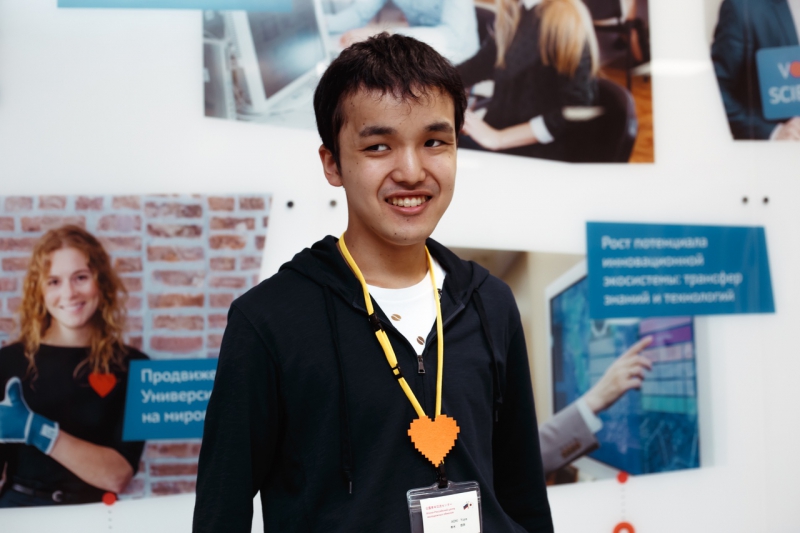
I’ve taken part in a similar exchange program before, in the UK. In terms of how persons with disabilities are treated, that country doesn’t have any issues. In Russia, some issues exist, but the situation is gradually improving. But it’s the worst in Japan, even despite our highly-developed infrastructure. We’ve got many new buildings and they’re all equipped with elevators and other equipment. St. Petersburg is an old city, and like the UK, it doesn’t always have all the required infrastructure. From what I’ve gathered, a PWD in St. Petersburg can’t go outside on their own, as there are far too many pedestrians and cars outside. But many people are very sympathetic and will help you if need be.
What I liked at ITMO University are the interiors; buildings in Russia are generally very spacious. The students here have lots of their own initiatives and ideas and don’t seem to be very restrained by their teachers, which I liked.
Imaoka Kanae, participant
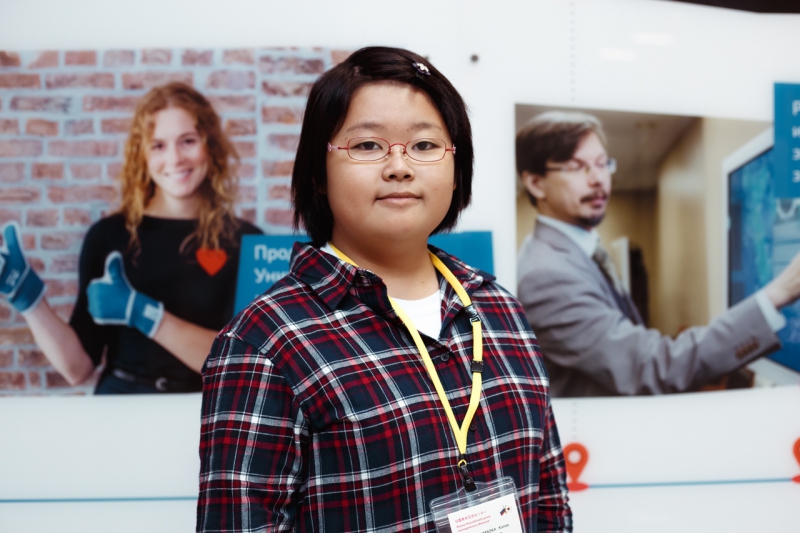
I was interested in coming to Russia because Russia and Japan are two completely different countries with very different histories, so I was interested to find out how things are done here.
What I’ve found most interesting is how many opportunities one has in Russia. In Japan, everything is regulated: depending on which health issue you’ve got, you may or may not be allowed to visit certain places. Even you social circle may be defined by your diagnosis: you either speak only to your family members, or meet others with similar illnesses.
I myself have vision-related issues, and I have trouble dealing with most paperwork; this trip has made me really want to support people with various health issues in their desire to find work.
At ITMO University, we’ve attended lectures on the development of volunteer organizations in Russia. I was impressed by the story of a dance project for PWDs. Another project aims to create comfortable clothing for people with various conditions. These are projects that involve students of ITMO and other universities. In Japan, people may make some sweets for you or bring you cookies, but I don’t remember any such socially-minded projects there.
Iwata Hina, participant
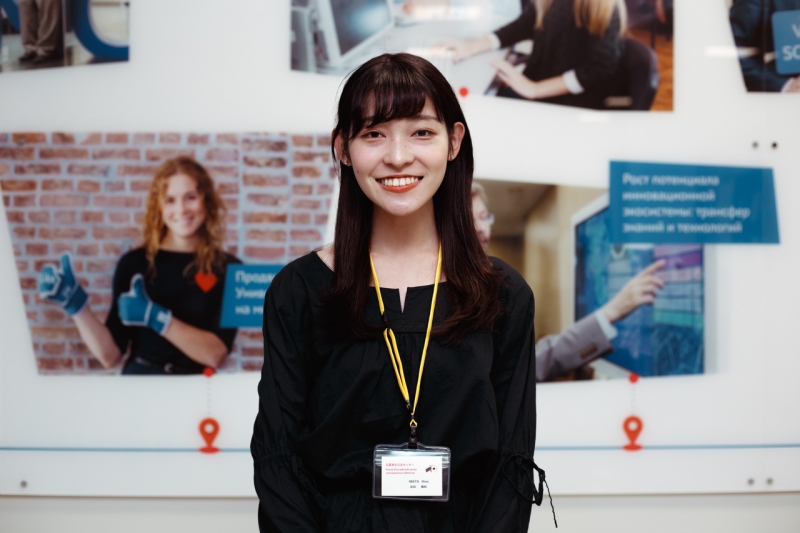
I wanted to find out how people with various conditions live in other countries and got the opportunity to take part in this program. We’ve been to rehabilitation centers in St. Petersburg and saw different kinds of special equipment, tools, wheelchairs, and elevators.
I really liked the way that PWDs are treated here; people are very attentive towards them. We’ve been to museums and theaters, which are accessible to disabled people. The only thing I found inconvenient was that the rehabilitation center we lived in was pretty far from St. Petersburg and it sometimes took several hours to get to the city.
I had a very good impression of ITMO University. I liked that the buildings and classrooms are wheelchair-accessible. A few times I’ve caught myself feeling like I’m in Singapore. I’d been there before, and ITMO felt quite similar in terms of accessibility.
Takakura Hironori, participant
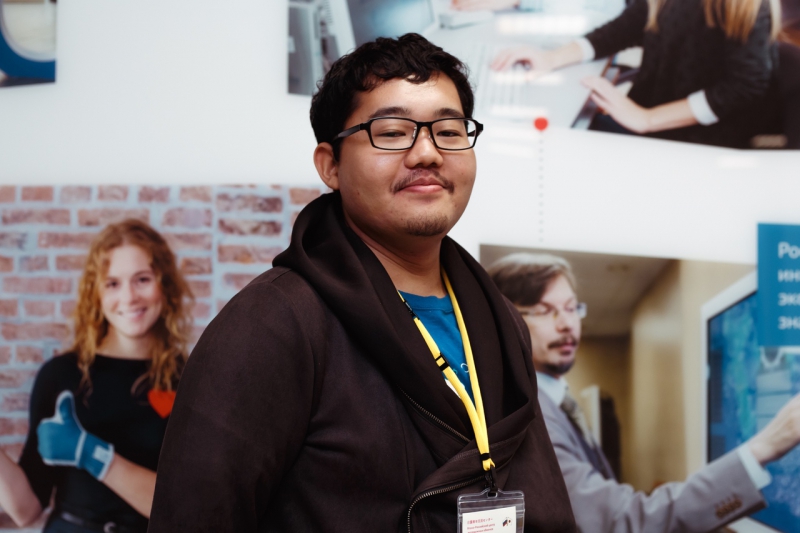
I’ve taken part in various Japanese volunteer programs that aim to help people with disabilities. During one of those programs, I’ve had the luck of meeting a few people from Russia who told me about the Russian-Japanese exchange program that would allow me to visit Russia and find out more about the life of PWDs here.
People here are very open and quick to help; for instance, if you’re struggling with a wheelchair. In Japan, on the other hand, they may throw you a judgemental look. In our country, you can’t raise your voice in public transport even though some people, like those with hearing disabilities, may sometimes need that. This makes them try to avoid using public transit. This is less of an issue in Russia. However, we’ve mostly traversed St. Petersburg by bus, so we’re not sure how things are with using the metro. In Japan, it’s easy, and the necessary equipment is always available. St. Petersburg also has very narrow sidewalks, which are not always accessible to people in wheelchairs, especially motorized ones.
ITMO University was very much to my liking, and it is evident that the students here are intelligent and even make their own projects. One thing I’d change is to make the entrance less steep and the elevator wider.
Tomii Harumi, participant
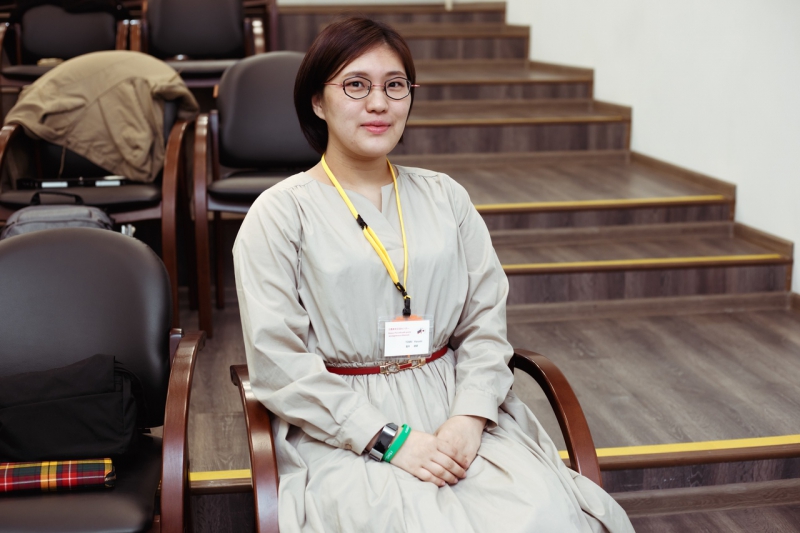
During our trip, we’ve had the chance to immerse ourselves in Russian culture and try delicious Russian food. I really enjoyed St. Isaac’s Cathedral and we also got to watch the bridges being drawn. I was glad to learn that there are many people who want the disabled to live comfortably alongside everyone else.
As for some of St. Petersburg’s issues, some of the streets here are paved with tiles and cobblestone, which of course makes them challenging for wheelchair users. When entering buildings, there is often a small step over the threshold, which means you always need someone to help you get over it. However, the people here were very receptive when we asked them for help, but it still complicated things.
The mentality in Russia is different. Japanese citizens with disabilities don’t set out to achieve the same goals as a regular person. I’ve noticed that Russians with disabilities want to be on the same level as others. This trip gave me the rare opportunity to talk to people with various conditions who are taking part in the program.
I used to only communicate with those who had the same condition as I do. Now I know how to talk to other people, how to approach them, and how to help them. That’s the first thing. Secondly, I have decided that next year I will be looking for a job, as I’ve seen how people with disabilities are able to find work here in Russia. I also noticed that it’s not only about what you do, but how things are set up. At my job interviews, I’ll be asking questions not only about the job, but also the environment I’ll be working in.
